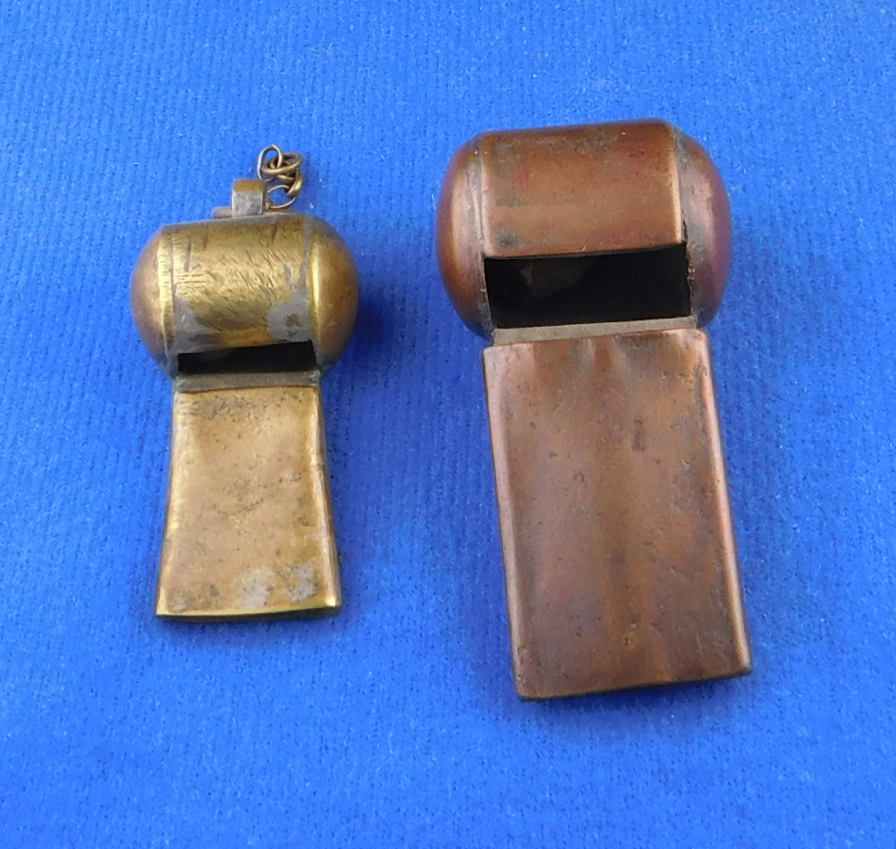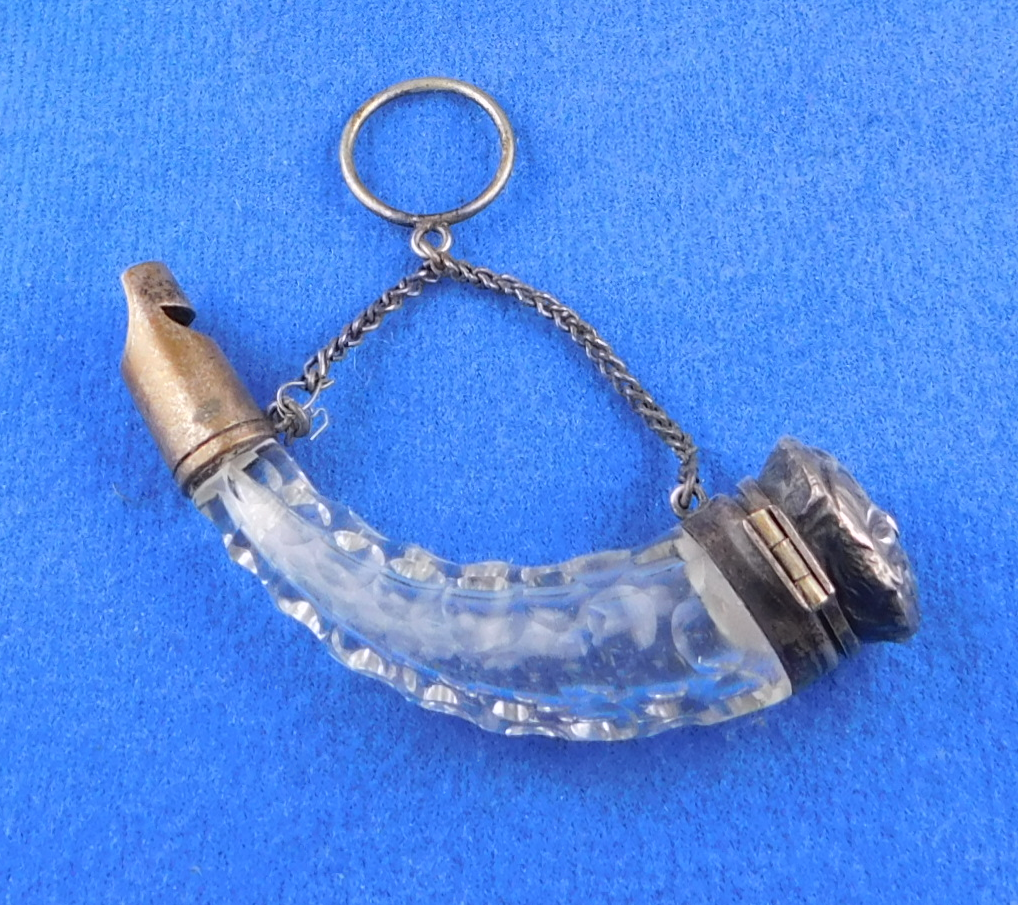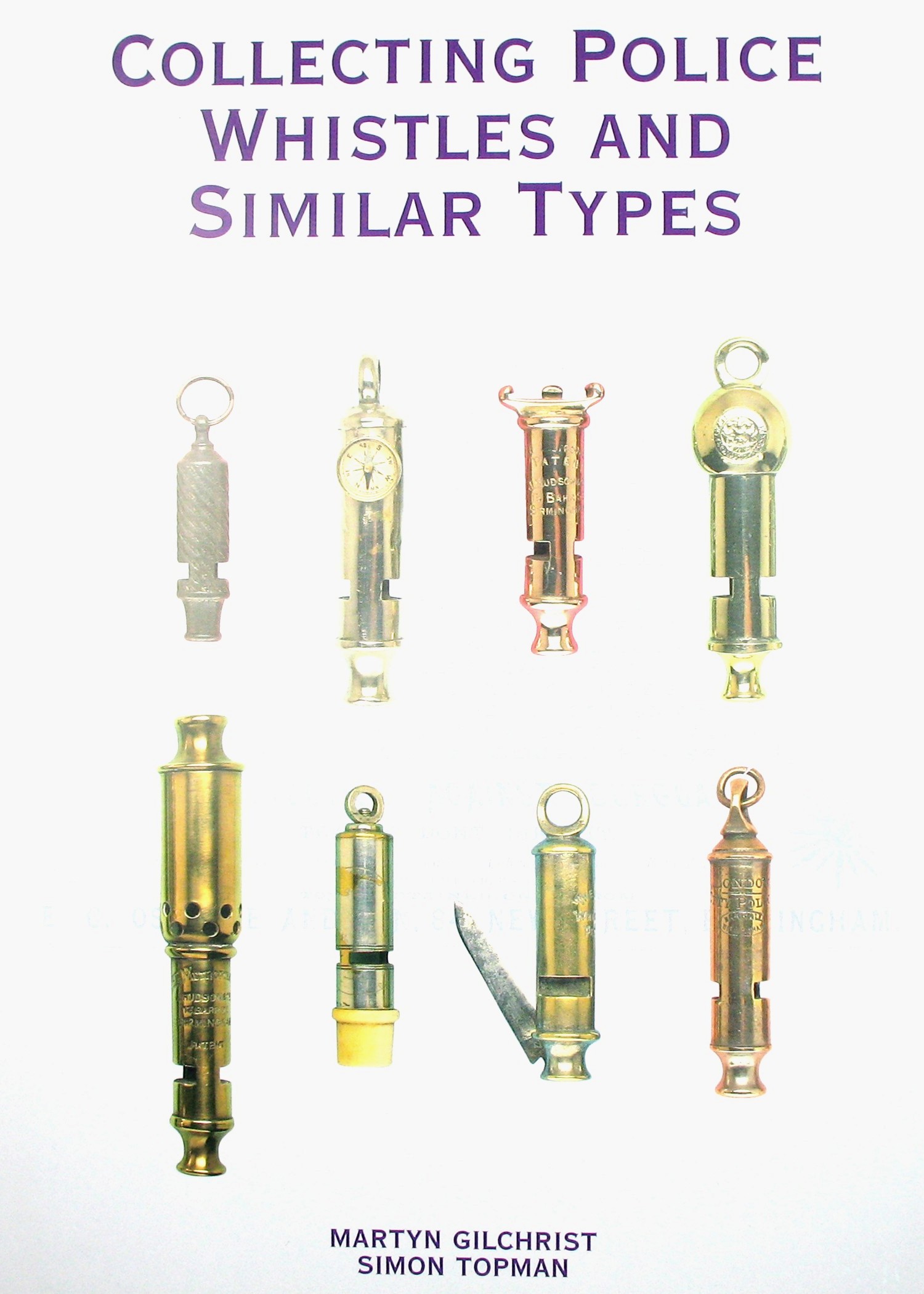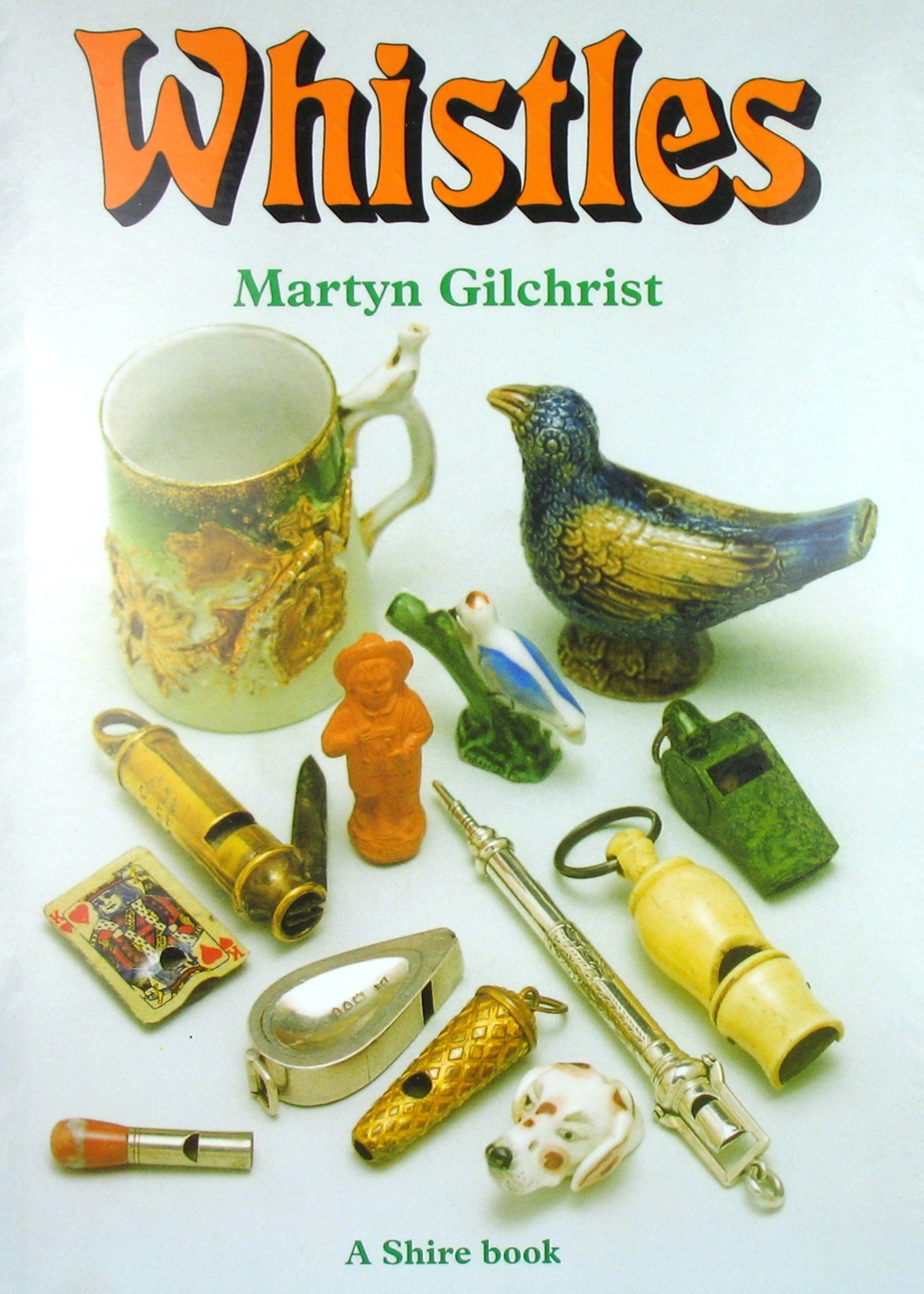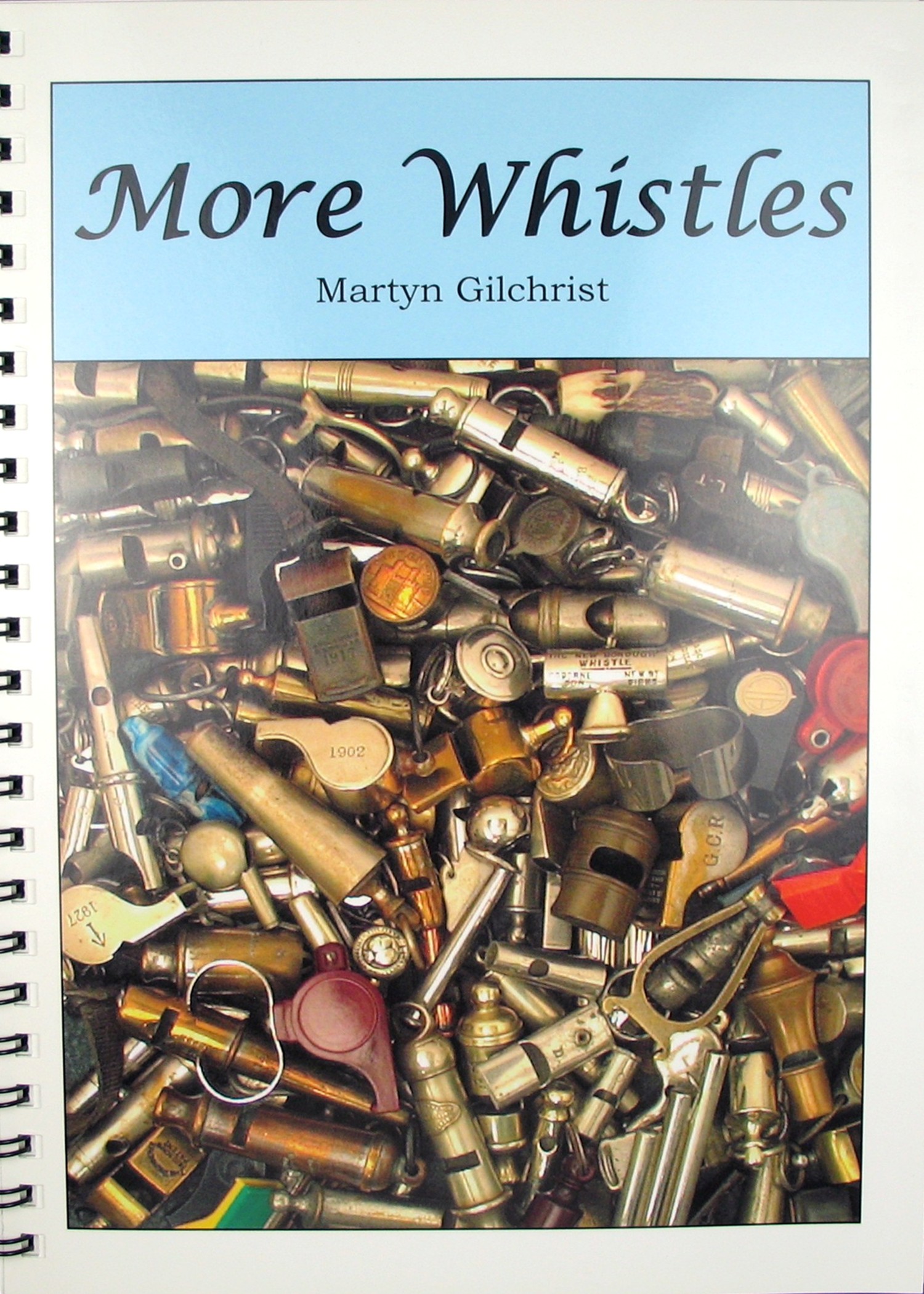Whistory
Found in France is a bulky, yet interesting pipe combined with a whistle. A pipe whistle, stamped Modele Depose in French for Registered Design.
The cast wheels all work and the pipe stem is removable, vulcanite. This is an actual working pipe and crafted out of a beautiful briar root wood base. The ‘door’ for the tobacco is steel with a brass trim with a simple hinge.
By the design, it has managed to cross three followers. Railway, tobacco and whistles, perhaps even toy collectors.
Unfortunately tracing the one who registered it is quite difficult from the states. Research into high quality vintage pipe makers has narrowed it down to Lucien Regad from the renowned pipe making area of Saint-Claude France.
Little is recorded about Lucien Regad who builds a pipe making business that is taken over by his son in law.
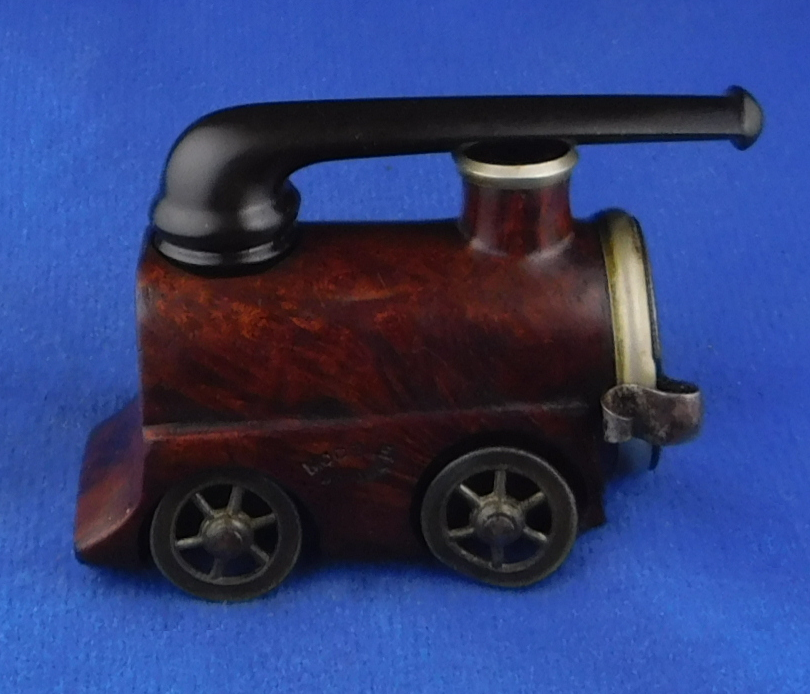
Whistle Classification
| Category | Variety |
| Order | Lucien Regad |
| Type | tobacco related |
| Class | Briar wood root |
| Subclass |
Whistle Archeology
The workmanship and materials suggest the turn of the last century
Modele Depose translates into Registered Design and it is stamped on the left and right of the main body. No maker’s mark is left on the pipe.
1875 Lucien Regad founds company – earliest of companies to use briar root wood
1868 Arthur Berrod joins company at 12 years old as an errand boy ( at 15 can run the plant )
1900 Lucien Regad builds a pipe factory at 2 Ter Rue Du Plan Du Moulin ( Saint Claude ).
1902 Arthur Berrod marries Theresa Regad
1914 Renames company Berrod-Regad upon death of Lucien Regad
24 employees, shipping to 50 countries
A Pipe Whistle Made of Briar Wood
Briar wood originates from a shrub-like tree Known As Erica Arborea and is actually part of the root structure. It isn’t technically a tree at all, but a large shrub. The plant is native to the Mediterranean Basin, Portugal, the Canary and Madeira Islands.
The part of the plant we know as briar wood grows just above Erica Arborea’s root structure between the roots and ste.. Known as “tree heath”, the dense roots are usually dug out of the ground by hand and then divided into small blocks known as burls.
One plant’s root structure only creates between five and ten pounds of burl, or enough to create six to twelve pipes.
Once cut into blocks, the burls are submerged in boiling water to remove any sap and resin that might remain in the cut pieces. Finally, the blocks are stored in large kilns to dry for a year or more.
Why Briar Wood, for the Pipe Whistle
Briar can withstand temperatures exceeding 700 degrees Fahrenheit. The burl grows for at least 40 to 70 years before it’s large enough to harvest.
Briar burl is not the wood of the rose briar as you might think, but it is actually the root burl of a type of heath (a plant similar to heather). The name briar comes from the French word for heath, which is bruyère. Briar is also known as heath, bruyère, pipe burl, and Briar burl.
Whistology
First see the Lucien Regad whistle/pipe.
Then we will look at some pipes by Regad with similar construction that are straight pipes

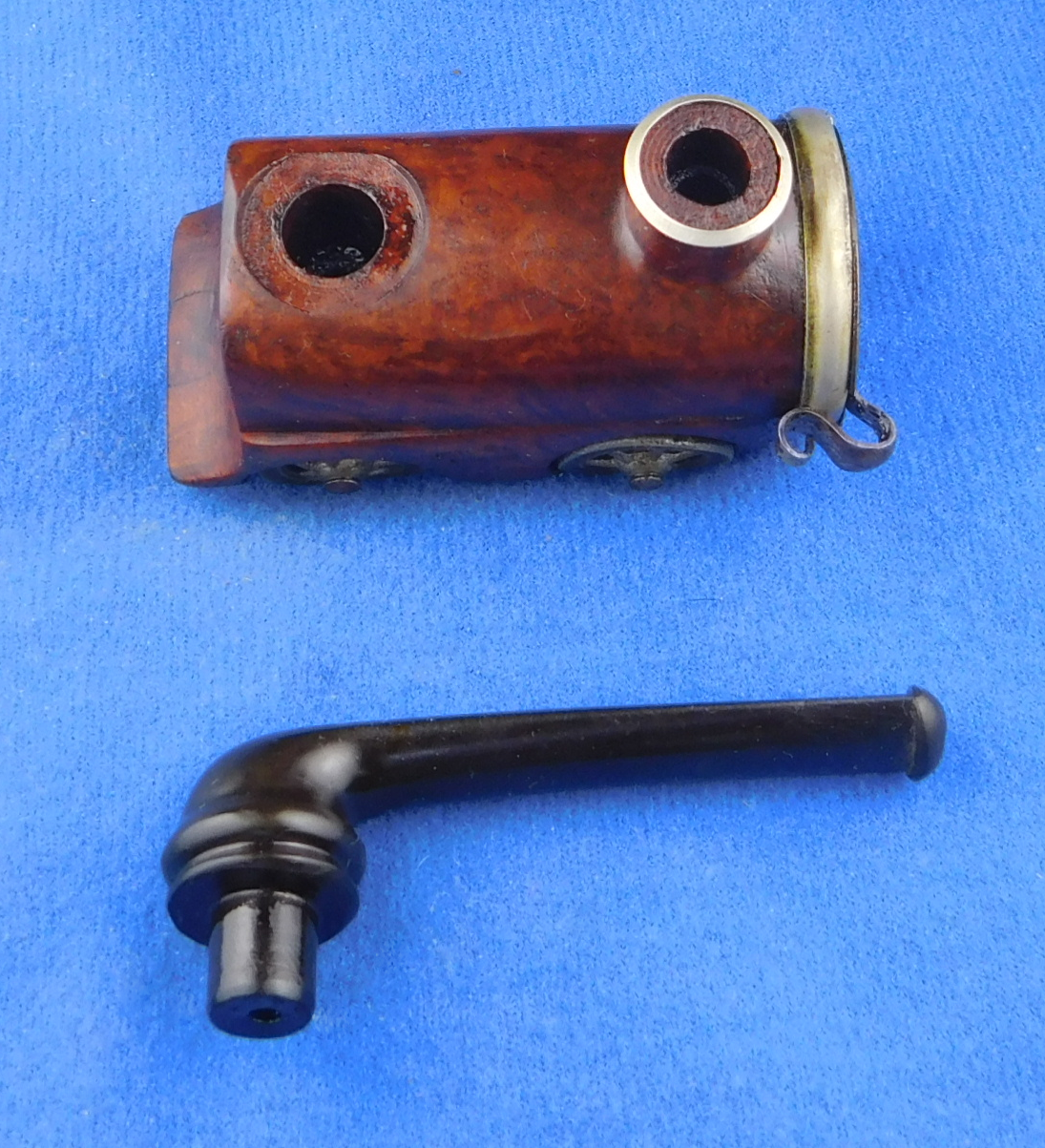
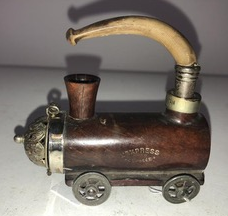
Photo Credit Needed
The small Peugot is stamped on the rear for L. Regad. This identifies and confirms the manufacturer.
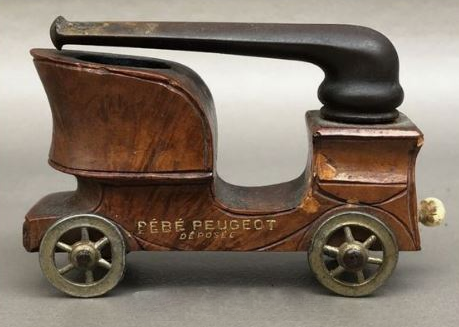
Photo Credit Needed
Top View
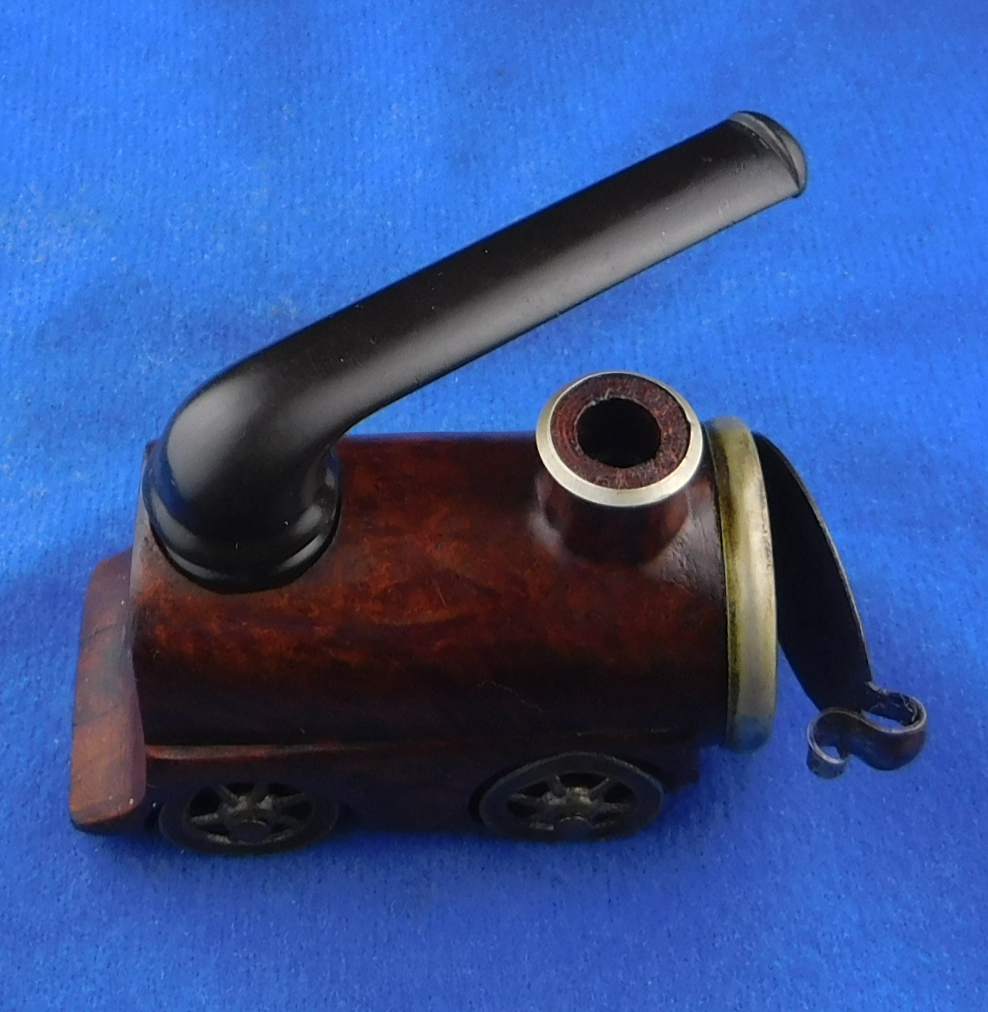
Bottom View
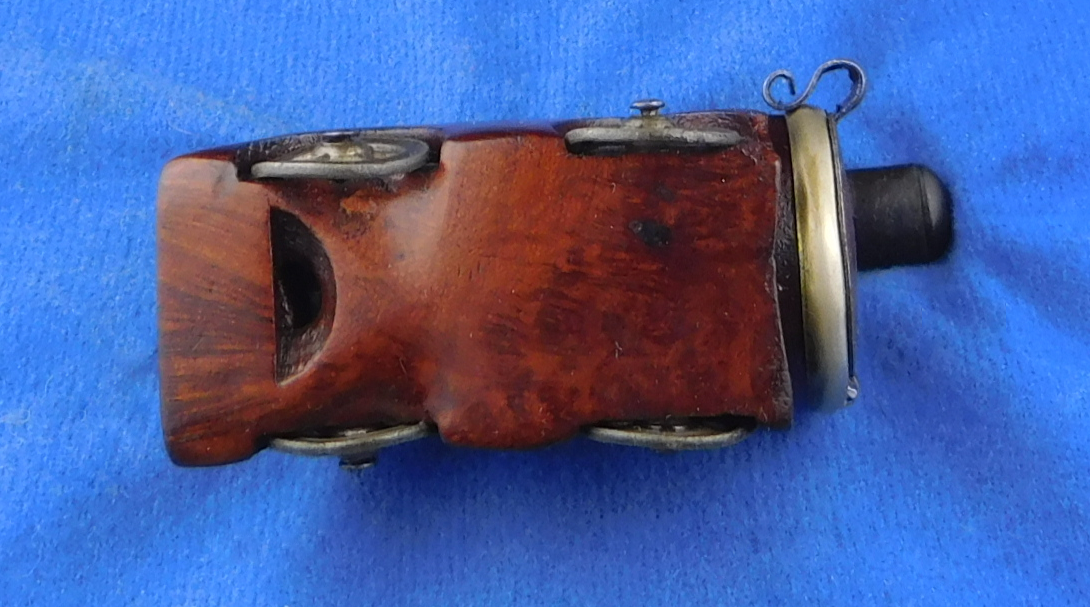
Door Closed
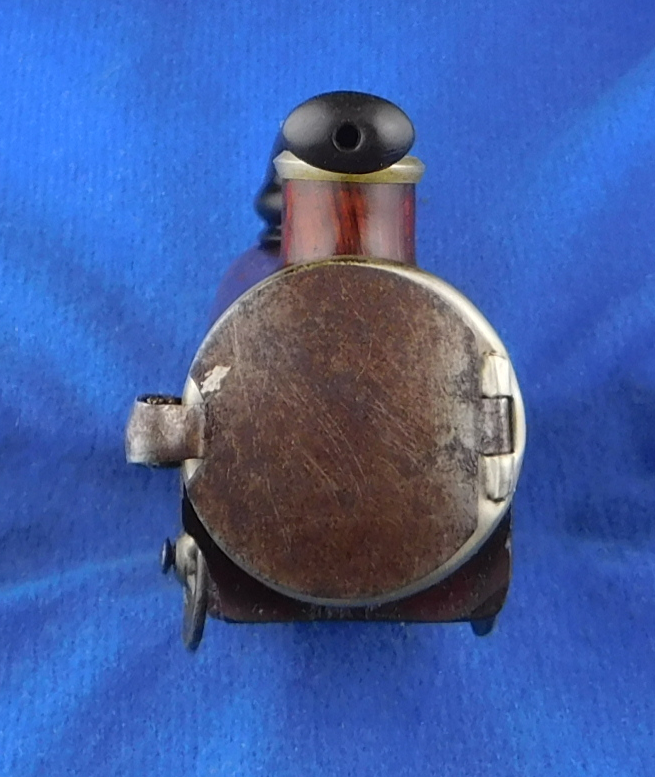
Door Open
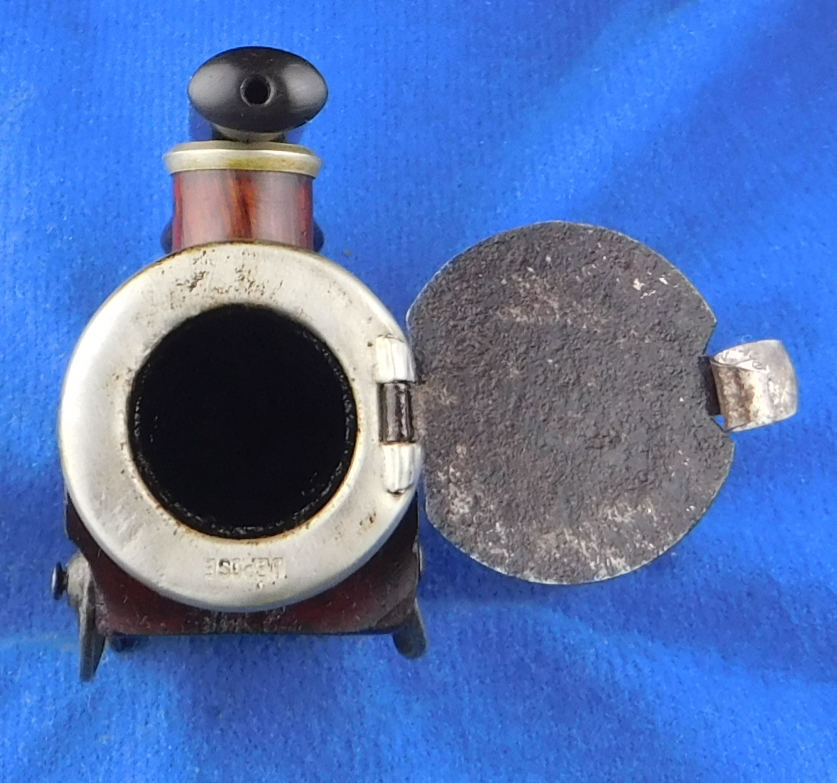
Whistle Mouthpiece
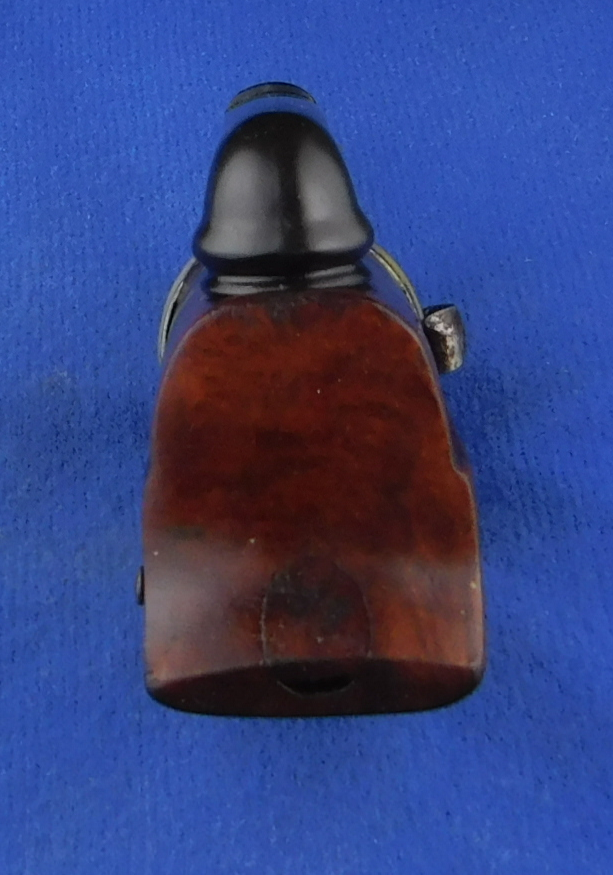
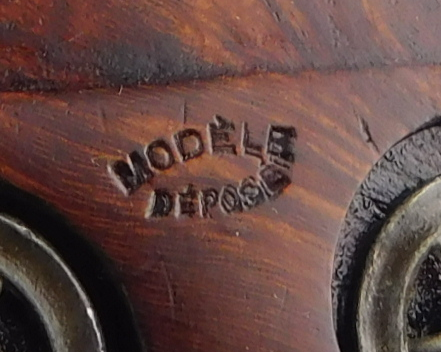
Conclusions:
A rare French manufacturer Lucien Regad of which little is known. His more unusual pipes were sometimes promotional and diverged here further to combine whistle. This model was registered as others were and falls under tobacco related whistles. Its construction is of fine briar root wood.
TWG
First Printing September 8, 2023
Posted October 2, 2023
Bibliography:
The Whistle Gallery Reference Collection
https://pipedia.org/wiki/Berrod-Regad
https://www.tobaccopipes.com/blog/what-is-briar-wood-for-tobacco-pipes/
https://www.gilmerwood.com/articles/briar_burl
https://www.bonhams.com/auction/24879/lot/169/a-bebe-peugeot-promotional-smokers-wooden-pipe-by-maison-regad-french/
https://www.pinterest.com.au/pin/434456695305519931/
© – All photos with blue background property of The Whistle Gallery reference collection. Please contact The Whistle Gallery for permission of use of any website content. Spotlight articles are copyrighted. Please contact The Whistle Gallery for permission of use of any website or Spotlight article material written or otherwise. Use of photos without authorization is prohibited.
